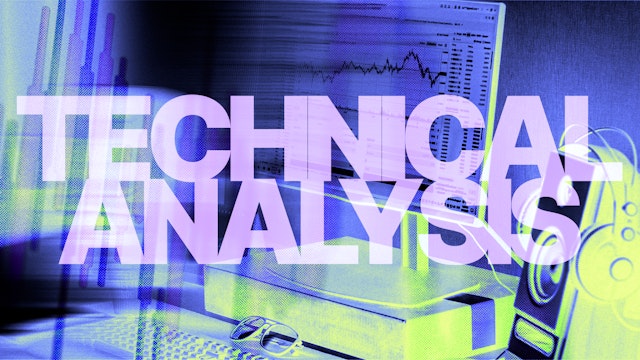What is the Quantum Computing Threat to Bitcoin?
What is quantum computing and is the danger to the crypto industry a real and impending threat?
In this article...
- Quantum computing has the promise to improve technology greatly
- In the wrong hands it could help to steal your Bitcoin.
- Here's an explanation of how quantum computing threatens the crypto industry.

What would happen if a criminal invented a master key that could unlock any safe in the world? That's essentially what quantum computers could do for Bitcoin's security system.
It’s not just cryptocurrency that’s in danger. The quantum threat reflects a broader challenge facing all digital security. Credit cards, online banking, secure messaging, and government systems all rely on cryptography that quantum computers could potentially break.
Quantum computing promises incredible advances in medicine, materials science, and artificial intelligence. But it also poses a significant challenge to the cryptographic foundations that keep assets secure, including Bitcoin.
As we are a crypto exchange we will focus on Bitcoin and quantum computing in this article, but crypto isn’t the only industry that this technology could affect.
Understanding Bitcoin's Security Basics
Bitcoin protects itself using two main cryptographic pillars.
Digital signatures: It's like signing a cheque. The signature proves it's really from you.
Hash Functions: Bitcoin uses mathematical functions to secure information. It’s like using a blender that turns any input into a unique output that's virtually impossible to reverse-engineer. Hashes are somewhat weakened by quantum computers, but digital signatures are the main vulnerability.
These security measures work because traditional computers would need billions of years to crack them through brute force – trying every possible combination until they find the right one.
What Makes Quantum Computers Different?
Regular computers process information using bits that are either 0 or 1, like light switches that are either on or off. Quantum computers use quantum bits (qubits) that can be 0, 1, or both simultaneously.
This quantum property, called superposition, allows quantum computers to explore many possible solutions at once rather than trying them one by one. It's like having thousands of people work on a puzzle simultaneously instead of one person trying each piece individually.
The Specific Quantum Threats to Bitcoin
A sufficiently powerful quantum computer could potentially derive your private key from your public key. It could create fake signatures that appear valid. Then, steal Bitcoin from any address that has revealed its public key.
This could become possible within 10-20 years, although some experts predict that it could be a threat by 2030.
How Serious Is This Threat?
The quantum threat to Bitcoin exists on a spectrum.
Not Immediate: Current quantum computers are extremely error-prone. IBM's latest quantum computer is impressive, but it's nowhere near the stability needed to threaten Bitcoin.
But Real: Major tech companies and governments are investing billions in quantum research. Google claimed "quantum supremacy" in 2019 for specific tasks, though not ones that threaten cryptography yet.
Potentially Devastating: If quantum computers advance faster than expected, billions of dollars in Bitcoin could be at risk, especially coins in older addresses that have revealed their public keys.
Bitcoin's Potential Solutions
The Bitcoin community isn't sitting idle. Several solutions are being developed. Researchers are creating new cryptographic methods that even quantum computers can't crack easily. These "quantum-resistant" algorithms rely on mathematical problems that remain difficult even for quantum computers.
Early Warning Systems
The quantum threat won't appear overnight. Scientists expect years of advance warning as quantum computers approach the critical threshold, giving Bitcoin time to implement defences.
For Current Holders:
-Bitcoin stored in addresses that have never sent transactions (never revealed public keys) are safer
-Stay informed about Bitcoin's quantum-resistance upgrades
-Bitcoin's programmable nature allows for cryptographic upgrades.
It’s Still in the Future
The quantum computing threat to Bitcoin is real but not imminent. While quantum computers could potentially break Bitcoin's current security in the coming decades, the threat is well-understood and solutions are actively being developed.
The race between quantum computing advancement and quantum-resistant cryptography development will likely define the next chapter of digital security.
For Bitcoin, staying ahead of this curve isn't just important – it's existential. But given the network's track record of adaptation and the brilliant minds working on solutions, there's reason for optimism about Bitcoin's quantum-resistant future.

Suggested Articles

What is Technical Analysis? Can I Read Crypto Charts?
What is technical analysis? How does technical analysis work? Here is the explainer.Read more
Render Network Upgrade: What the Shift from RNDR to RENDER Means for You
A complete guide to the token migration, the move to Solana, and how it may impact your crypto holdings.Read more
What is Multichain in Crypto? Understanding Blockchain
What is multichain in crypto? It's increasingly in relevance, so here's what you need to know.Read moreBrowse by topic
CoinJar’s digital currency exchange services are operated by CoinJar Australia Pty Ltd ACN 648 570 807, a registered digital currency exchange provider with AUSTRAC.
CoinJar Card is a prepaid Mastercard issued by EML Payment Solutions Limited ABN 30 131 436 532 AFSL 404131 pursuant to license by Mastercard. CoinJar Australia Pty Ltd is an authorised representative of EML Payment Solutions Limited (AR No 1290193). We recommend you consider the Product Disclosure Statement and Target Market Determination before making any decision to acquire the product. Mastercard and the circles design are registered trademarks of Mastercard International Incorporated.
Google Pay is a trademark of Google LLC. Apple Pay is a trademark of Apple Inc.
This site is protected by reCAPTCHA and the Google Privacy Policy and Terms of Service apply.

